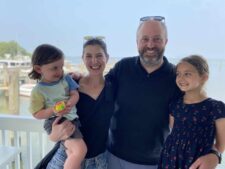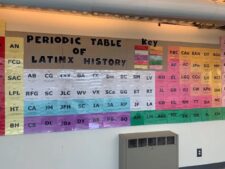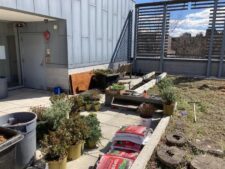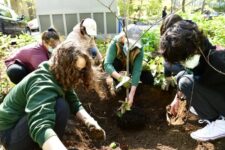The All School Multicultural Committee hosted Dr. Anthony Jack, author of “The Privileged Poor: How Elite Colleges Are Failing Disadvantaged Students,” for our Fall Forum. On October 27, forty-seven members of the ECFS community gathered for a virtual conversation with Jack. Hayden Greene P ’27 P ’31, ASMC Co-chair, and Director of Multicultural Affairs at Manhattan College, moderated the event. Jack spent an hour with the ECFS community to discuss his research and his story. Jack, who counts himself among the privileged poor, went to Gulliver Preparatory School in Miami on a scholarship before attending Amherst College.
As Jack put it, “Access ain’t inclusion. Schools need to be more intentional about reaching out to students that haven’t been in the system.” When schools admit students from low-income homes, they must build and foster scaffolds of support to help these students succeed.
Jack defines two categories of low income students: “the privileged poor” and “the doubly disadvantaged.” The privileged poor are students who come from low-income backgrounds but attend independent, well-resourced high schools, like ECFS. These students have learned how to navigate a more affluent social and economic landscape. They have learned about the hidden curriculum of resources, such as office hours and academic support centers. Through their years of experience at these schools, they know what the “expectations” are and how to meet them.
In contrast, the “doubly disadvantaged” are lower income students who have not had previous access or exposure to affluent environments. In a particularly poignant example, Jack spoke about how colleges close up for spring break, expecting all students to take a vacation. This assumption neglects the students who can’t afford a plane ticket home much less a trip to the Bahamas. Schools would close cafeterias and turn off the heat in dorms, literally leaving some kids in the cold. In his book, he provides many examples of the challenges these students face and explains what schools can do differently if these students are to thrive.
When asked how we as a community could provide support to economically disadvantaged students, he suggested: “Build out development communities.” A development community would allow a pair of students to have support from one adult mentor in the community. He suggested that the adults supporting the students need to visit the students in their own environments to understand their home lives.
Jack writes, “We need to make a concerted effort to teach students about each other. Understanding your peers can help limit misunderstanding and exclusion.” He explains that “this expansion of world-view must go both ways…. It is not just a matter of poor students adjusting to a world of wealth; upper-income students must learn to be more accepting of other students’ ways of life.” In his talk, he spoke about the “power of place” and that we need to understand where we all come from and where we all are currently to more deeply understand the inequalities.
He encourages students to “never, ever be afraid to ask for help” and to know that “seeking help is a sign of strength.” We need to teach our students that academic success is a process and not an outcome. A person’s path forward is improved by having someone come along with you. Learning is a collective journey, not an individual one.
Jack reminds us that to create a sense of belonging takes intentionality and a willingness to really see each other and understand our stories. He urges us to grapple with a simple fact: Access ain’t inclusion.




